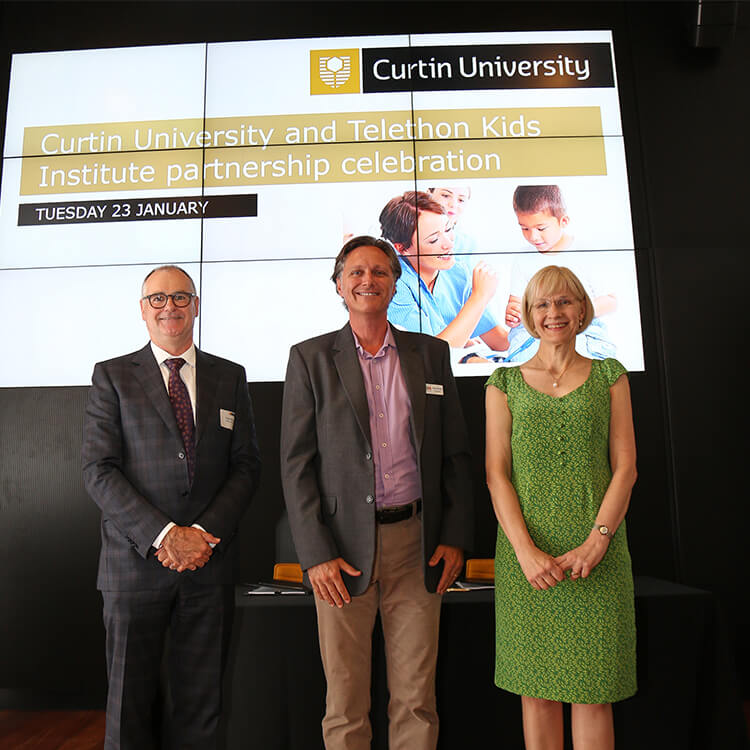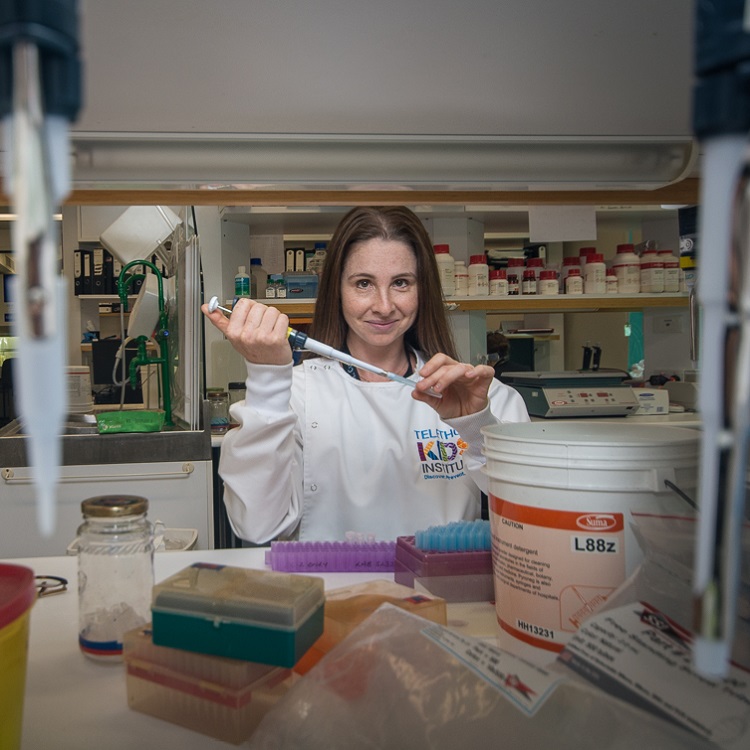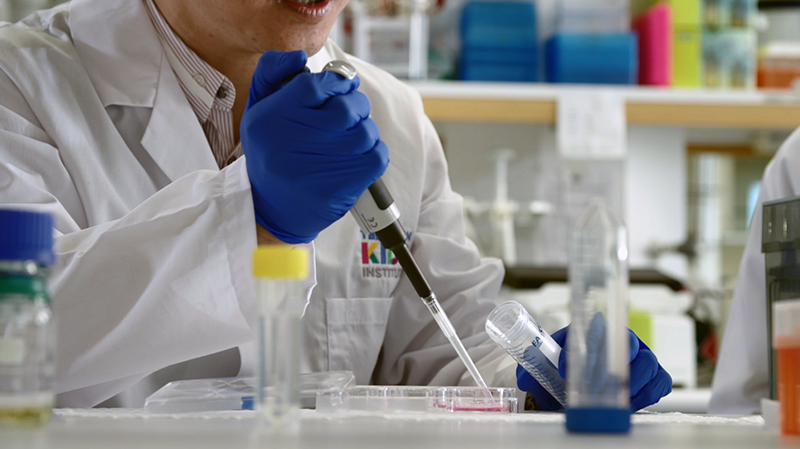Search

News & Events
New clinical trial to improve outcomes for babies with leukaemiaThe Australian arm of an international clinical trial looking at improved treatments for young babies with leukaemia has been awarded funding from the MRFF.

News & Events
$3.4mill to improve treatment management of cystic fibrosisThe Kids researchers have been awarded over $3.4 million for a new trial to pioneer improved ways for managing cystic fibrosis (‘CF’).

News & Events
New era for child health research with The Kids Research Institute Australia and Curtin partnership signedThe Kids Research Institute Australia and Curtin University will work together as part of a new agreement focused on enhancing children’s health and medical research in WA.

News & Events
Government funding for innovative sun safety online tool for teensThe Kids researcher Dr Shelley Gorman has received a Healthway grant to develop an online tool to promote safe sun behaviours to teenagers.

News & Events
Meaningful moments build young brainsReading to your child is one of the easiest, most enjoyable activities you can do as a parent or caregiver.

News & Events
NHMRC funding boost to child health researchThe Kids researchers will use nearly $8.5 million awarded by the National Health and Medical Research Council (NHMRC) to tackle health issues including respiratory disease, brain cancer, vaccination and Aboriginal health.

News & Events
What life is like living with type 1 diabetesEvery decision a child with type 1 diabetes makes can impact on their blood glucose levels.

News & Events
My child is trans – how do I support them?Raising a child in one gender and then having them identify as another at any stage in their life can be difficult for a parent to understand and is not always an easy shift for a parent to make.

News & Events
The balance between screen, face and free timeProfessor Donna Cross advises parents on keeping your children engaged and amused during the holidays, especially around screen time and cyber safety.

News & Events
Skin infections send eight out of every 100 Aboriginal babies to hospitalIn a WA first, researchers from The Kids Research Institute Australia have shown that Aboriginal babies are 22.5 times more likely to be treated for skin infections than non-Aboriginal babies.
